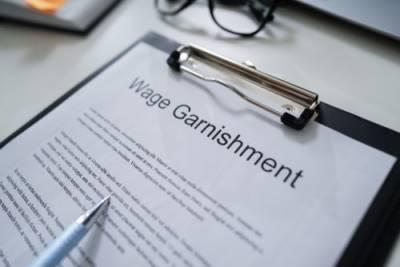How Does Bankruptcy Address Wage Garnishment or Judgment Liens?

Debt can be a difficult issue to deal with, but it is something that affects most people. Regardless of the reasons why debts have accrued, an individual or family that experiences financial difficulties may be unable to make payments as required, and this may lead creditors to seek legal judgments against them. In these situations, a debtor may find themselves facing wage garnishment or liens against their property. By understanding the best ways to deal with these issues, including the options for filing for bankruptcy, debtors can determine how to receive relief from their debts and avoid ongoing financial problems.
What Is Wage Garnishment?
Wage garnishment is the legal process of taking money from a person's paycheck or other forms of income in order to pay debts owed. When a creditor initiates a lawsuit against a debtor, and the court rules in their favor and states that they are allowed to collect the debt, the creditor may then seek to enforce this judgment through a wage garnishment order.
A wage garnishment order will be issued to a debtor's employer, and it will require the employer to withhold part of the employee's wages and pay that amount to the creditor. This practice can cause significant financial hardship for the debtor, because it may significantly reduce their take-home pay.
Wage garnishment orders will usually remain in place until the amount of the legal judgment is paid in full. However, if the debtor files for bankruptcy, this will cause an automatic stay to be put in place that will put a halt on any existing wage garnishment orders. If the debtor completes the bankruptcy process and successfully discharges their debt, they will no longer be subject to the wage garnishment order, and they will no longer have the obligation to pay what is owed to the creditor.
What Are Judgment Liens?
A judgment lien is a legal claim placed on a debtor's property by a creditor. This lien gives the creditor an interest in the property and allows them to collect the amount owed if the debtor chooses to sell their home or property in the future. The amount of a judgment lien can vary depending on the amount owed to the creditor and the amount of equity the debtor owns in their property.
Judgment liens can remain attached to the debtor’s property until they are able to fully pay off the amount owed plus any interest or penalties imposed by the court. In some cases, this could result in months or even years before a person is able to sell the property. Unlike some other types of debt collection actions, liens cannot be removed through bankruptcy, and even if other debts are discharged, the creditor's claim against the property will remain in place. Because of this, debtors are usually recommended to file for bankruptcy before a creditor obtains a legal judgment against them or takes action to enforce a judgment by placing a lien on their property.
Contact a United States Bankruptcy Attorney
When used correctly, bankruptcy can be an effective way of addressing wage garnishment and preventing judgment liens. By putting an automatic stay on collection efforts while also providing protection against asset seizure, bankruptcy can help debtors avoid financial difficulties and provide them with the ability to regain control over their finances. To ensure that the bankruptcy process can be completed successfully, debtors will need to work with an experienced U.S. bankruptcy lawyer who can help them understand all of their options. With the help of an attorney, a debtor will be aware of the potential implications of the decisions they make, and they can take the correct steps to eliminate their debts and move on to a more successful financial future.
Sources:
https://www.dol.gov/agencies/whd/wage-garnishment
https://www.investopedia.com/terms/j/judgment-lien.asp
https://www.americanbar.org/groups/gpsolo/publications/gpsolo_ereport/2022/september-2022/automatic-stay-bankruptcy-overview/
















